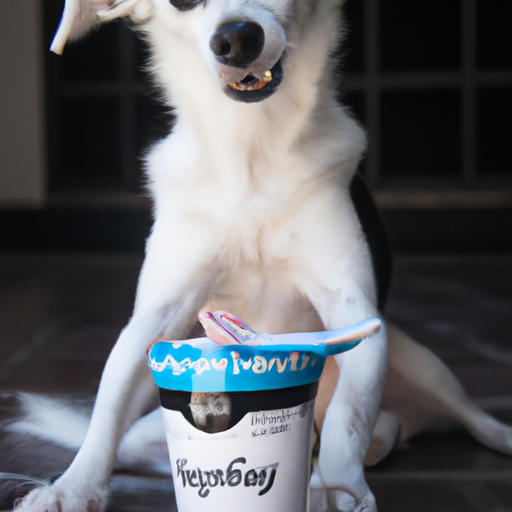As a devoted dog owner, it’s natural to want the best for your canine companion. You try to ensure they get enough exercise, regular vet checkups and, of course, a healthy diet. You’ve probably heard about the benefits of yogurt for dogs and wondered if it’s a good choice for your furry friend. Let’s delve into this topic and clarify your concerns.
Understanding Yogurt: A Brief Overview
Yogurt is a dairy product made via the fermentation of milk by bacteria. It’s known for its probiotics, which are beneficial bacteria that help promote a healthy gut. But, is it safe for dogs? Yes, with some exceptions.
- Plain, unsweetened yogurt is safe for most dogs.
- Flavored or sweetened yogurt often contains xylitol, an artificial sweetener that’s toxic to dogs.
While yogurt can be a healthy snack for your dog, remember that all dogs are unique. What works for one dog might not work for another.
How Yogurt Benefits Your Dog
Yogurt is packed with several nutrients beneficial to your dog’s health:
- Probiotics: These live bacteria can help maintain a healthy balance in your dog’s gut.
- Calcium: Essential for strong bones and teeth.
- Protein: Necessary for muscle development and energy.
- Vitamins: Such as B12 and D, which support heart health and bone strength, respectively.
Not only can yogurt support your dog’s overall health, but it can also help resolve minor digestive issues.
How to Choose the Right Yogurt
When it comes to choosing the right yogurt for your dog, remember these tips:
- Always opt for plain, unsweetened yogurt.
- Avoid yogurts containing xylitol or other artificial sweeteners.
- Look for yogurts with live and active cultures.
Here’s a simple table to help you remember what to look for and what to avoid:
| 🐶✅ Good for Dogs | 🚫❌ Bad for Dogs |
|---|---|
| Plain Yogurt | Flavored Yogurt |
| Live Cultures | Artificial Sweeteners |
| Unsweetened | Xylitol |
Serving Yogurt to Your Furry Friend
When introducing yogurt to your dog’s diet, start with small servings to see how your dog reacts. Keep an eye out for any signs of digestive discomfort, like gas or diarrhea. If your dog tolerates the yogurt well, you can slowly increase the serving size.
Remember, moderation is key. Treats (including yogurt) should make up no more than 10% of your dog’s daily caloric intake.
FAQ’s
Q: Can all dogs eat yogurt?
A: Most dogs can eat yogurt, but those with lactose intolerance or dairy allergies should avoid it.
Q: How much yogurt can I give my dog?
A: Start with a small amount. If your dog tolerates it well, you can gradually increase the serving size.
Q: Can puppies eat yogurt?
A: Yes, but only in small amounts. Always consult your vet before introducing new foods to a puppy’s diet.
Q: Can I give my dog yogurt every day?
A: It’s best to feed yogurt as a treat, not a staple of your dog’s diet.
Q: What if my dog eats yogurt with xylitol?
A: Xylitol is toxic to dogs. If your dog ingests it, contact your vet immediately.
In conclusion, yogurt can be a delicious and nutritious treat for your dog when chosen carefully and served in moderation. As always, when introducing new foods to your dog’s diet, it’s best to consult your vet.



